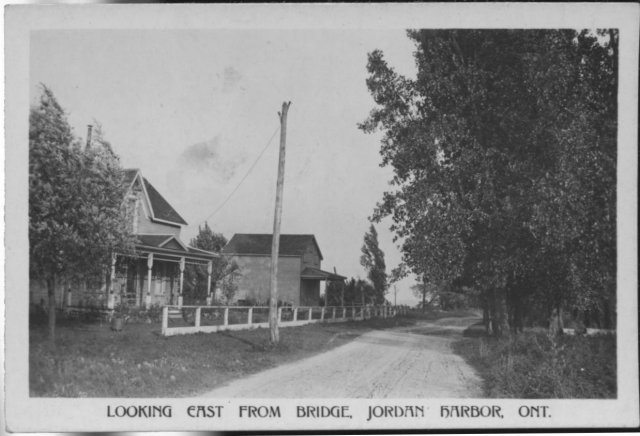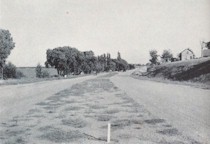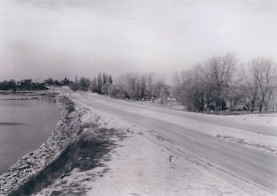ERIC KRAUSE
In
business since 1996
- © Krause House
Info-Research Solutions -
_____________________________________________________________________________________
BACKGROUND GENEALOGY
_____________________________________________________________________________________
VINELAND
PRE-1924
http://www.mhso.org/publications/Mennogesprach4-1.pdf -
Mennogespräch,
March 1986 Vol. 4 No. 1
Vineland Postcards - Rittenhouse, Jordan, etc.
1924
Mennonite immigrants arrived from Russia in 1924 in the Vineland area. Until 1934 the Mennonite Brethren and General Conference Mennonites worshiped together in rented facilities ... http://www.mbconf.ca/index.cfm?pageID=538&template=print&
1924
EXTRACT
Nicholas Fehderau in Canada
My First Impressions and Experiences in my Adopted Land.
By
Nicholas Fehderau in Canada
Translated by Herbert Enns
It was on the 17th of July, 1924,when we first set foot on Canadian soil. Although we had entered the harbour of Quebec City the night before, we were told to remain on board our ship" Minnedosa," and sleep the night in our cabins .
Next morning, early, we left the ship and were ushered into a huge immigration hall. The 1200 immigrants who gathered there created an impression of utter confusion as papers and passports of each immigrant were processed.
From Quebec two trains were to take us to Waterloo, Ontario. It took some time before the trains were ready for us and we were given instructions to board the train. Each train was made up of ordinary passenger cars with wooden seats and no upholstery, with overhead sleeping facilities. Although these were no luxurious passenger cars, nevertheless they were much more comfortable than the freight cars which we had occupied when we departed from Russia.
In the huge waiting room in Quebec, a number of men mingled among the immigrants, searching out certain families, who would go to Vineland and work there.
One of these men was identified as a Mr. Fretz from Vineland . Persons/families which he had chosen were identified by a green ribbon which was pinned on the immigrant's suitcoat. This selected group, destined for Vineland, were ushered into special passenger cars, and when the train arrived in Toronto, these cars were uncoupled and attached to another train bound for Vineland. These immigrants worked all summer long in the orchards of Vineland, picking strawberries, later cherries, peaches, plums, pears and other fruit. This Vineland group may have numbered about 200, and the rest of us were perhaps somewhat envious, since they were going to a designated location, and the promise of a job. The rest of us continued our journey, with a seemingly uncertain future. Ontario, Kitchener, Waterloo, for us they were strange names and expressions, and the people who receive us were also strange. On the map we had been able to identify the area as being located near the Great Lakes, but that was all. Just before I left Russia one of my teachers asked me, "Do you know where you are going?" "Well," I replied, "I was going to Canada, and once to Canada I was going to Ontario," but that was all I knew. The teacher (Mr. Wiens) went to a large map of North America and pointed to a dot on the map where Kitchener-Waterloo was located and said, "That is where you are going."
As soon as we entered the large immigration hall in Quebec City we were offered treats to eat, and it was there that for the first time in my life I had a taste of bologna, and I was not impressed. On the train we received sandwiches, sausages, etc. It was enough to satisfy our hunger. In fact I had little hunger because of the uncertain future. The night on the train with its hard sleeping facilities did not give the refreshing sleep one expected. My courage for a bright future in Canada on that first day was seriously eroded. The area through which our train passed, consisted mainly of bush, lakes and rocks, hardly ever did we get a glimpse of a nice farm with level land .
As immigrants, we had received permission to emigrate to Canada on condition that we would settled on farms .Canada, we were informed, did not need industrial workers, Canada needed farmers, that was our future. Was it any wonder, after traveling a whole day and seeing nothing but wilderness, rock and lakes, that some of the immigrants became a bit squeamish about their future, particularly those who had worked the rich soil of the Steppes of the Ukraine?
Even the next day the scenery from the railway window did not seem to improve greatly. Although here and there we did pass through cleared land and farm homes. And thus we arrived in the afternoon in Toronto, where we said good-bye to our friends who were traveling to Vineland, while our train hastened to its destination -Waterloo ...
1924 - 1927
1930s

1934
c. 1935 - c. 1937
1938

Looking east along graded New Niagara Falls Highway at Jordan Harbour (1938) Photo courtesy of Ontario Ministry of Transportation
http://www.thekingshighway.ca/PHOTOS/QEWphotos.htm
1939
November 22

Graded Queen Elizabeth Way at Jordan Harbour, looking west (Nov. 22, 1939) - http://www.thekingshighway.ca/PHOTOS/QEWphotos2.htm
1950s
http://www.gameo.org/encyclopedia/contents/O5830ME.html - Mennonite Encyclopedia, v. 4, p. 62
http://www.gameo.org/encyclopedia/contents/O5830ME.html
1970
JOHANN JOHANN MATHIES, b. June 05, 1890, Russia; d. October 11, 1970, Vineland, Ontario, Canada; m. MARGARETHA FRIESEN.
1976
DAVID J.4 MATHIES, b. March 08, 1884, Schönbrunn, Schönfeld Colony, Ukraine; d. October 09, 1949, St. Catharines, ON Canada4; m. (1) HELENA BALZER, ??; b. ??; d. August 19, 1918, Roppowo, Russia; m. (2) AGNES KOOP, Abt. 1919; b. Abt. 1894, Ukraine; d. December 02, 1976, Vineland, ON Canada.